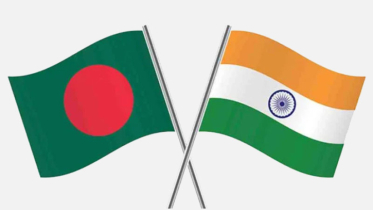BD budget to focus on curbing inflation, boosting employment

The upcoming budget of Bangladesh– aiming at restoring macroeconomic stability – will focus on reining in inflation, stabilising international transactions, creating employment, and spurring investment, the Business Standard reports.
The outlay of the first budget in the current term of Sheikh Hasina led Awami League government, will remain relatively small, with less emphasis on increasing development expenditures.
In a meeting on Monday, the Finance Division briefed Prime Minister Sheikh Hasina on the initiatives in the management and development sectors in the budget for the fiscal 2024-25, according to ministry sources.
A senior Finance Division official present at the meeting said the PM expressed satisfaction with the budget plan.
"The premier has asked officials to take necessary measures to curb inflation and implement various commitments made in the election manifesto," the official quoted her as saying at the meeting held at the Prime Minister's Office.
Finance Secretary Khairuzzaman Mozumder, along with senior officials engaged in budget formulation, were present at the meeting. On Tuesday, the National Board of Revenue will apprise the premier about its revenue collection plans.
The finance ministry had similarly prioritised ensuring macroeconomic stability, inflation control, and stability in foreign exchange transactions in the previous two budgets. However, its officials feel that it has not been very successful, primarily due to global factors such as the Russia-Ukraine war and internal problems.
The Finance Division official further said the primary aim of the next budget will be to restore macroeconomic stability. Therefore, its size will not increase as in previous years, with the budget deficit remaining below 5% and development outlay being lower. However, the operating budget will not decrease.
According to sources, the Finance Division has planned a budget of Tk796,900 crore – Tk531,900 crore for operational and Tk265,000 for the development expenditures. The GDP growth target will be set at 6.75% and inflation goal at 6.5%.
To implement this budget, a revenue collection of Tk476,500 crore is being planned through the National Board of Revenue. The government expects Tk70,000 crore in non-tax revenue. The Tk250,400 crore deficit will be met through internal and external borrowing.
The latest BBS data shows that food inflation has risen to 10.22%. Sources in the Finance Division said the government will focus more on increasing production to control food inflation. Besides increasing supply in the market, initiatives will be taken to address non-economic factors.
Additionally, caution will be exercised in reducing the flow of money, increasing allocations and beneficiaries of social security programmes, and adjusting electricity prices.
Another Finance Division official said the beneficiaries of the social security programmes will be increased by about 5 lakh. Specifically, the beneficiaries of the old age allowance will be increased by two lakh, while widow, destitute, and widowed women beneficiaries will be increased by two lakh.
Additionally, the allowance for the mother and child support programme will be increased by Tk200, and the allowance for senior citizens above 80 years old will be increased by Tk300.
The food ministry is receiving an additional allocation of Tk350 crore for its OMS programme. Furthermore, the government is allocating additional funds for the social security programmes of the Ministry of Disaster Management and Relief, the Ministry of Agriculture, the Ministry of Women and Children Affairs, the Ministry of Fisheries and Livestock, and other ministries.
Meanwhile, on 6 May, the BBS released the quarterly labour force survey results, which showed an increase in total unemployment in the country. According to the latest data, the number of unemployed people in the country is 25.90 lakh.
Finance Division officials said there will be investment and business expansion initiatives in the budget to reduce unemployment. For this reason, there will be initiatives to reduce the import cost of raw materials and intermediate goods for the industry, along with incentives in labour-intensive industries.
To increase the supply of foreign exchange in the country, the government will give special importance to the implementation of development projects involving foreign loans and grants. Additionally, there will be initiatives to increase export income and remittance flow. Furthermore, electricity subsidies will remain even after fossil fuel subsidies are removed.
Sources from the Finance Division have said the largest subsidy will be given to the electricity sector, amounting to Tk35,000 crore, followed by the agriculture sector at Tk25,000 crore.
Export incentives will receive Tk7,825 crore, while Tk7,000 crore will be allocated as a subsidy for the imported LNG sector. Additionally, subsidies in the food sector will amount to Tk7,000 crore, and remittance incentives will require a subsidy of Tk6,200 crore.
.png)




